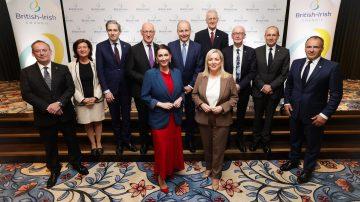Jersey’s Co-Funded Payroll Scheme (CFPS) has been extended to additional sectors for claims for January 2022 (to be made in February).
Following a review by the Council of Ministers, the Minister for Treasury and Resources has extended CFPS eligibility to include wholesale and retail businesses, hairdressing and other beauty treatments, driving schools, sports activities (including gyms), physical well-being activities, sports, recreation and cultural education and childcare.
The Minister for Treasury and Resources, Deputy Susie Pinel (pictured), said: “The CFPS is the most effective tool we have to respond to the impact that public health measures have had on businesses. When we brought back the scheme in December, we committed to keeping it under review to ensure it was able to provide support to all the sectors that were severely impacted, and this latest change shows we have done this.
“It is intended that this is the final extension of the Scheme. The CFPS, together with other business support schemes, has protected the livelihoods of 15,000 Islanders throughout the pandemic. Now that public health measures have been withdrawn, we are entering a new phase of the pandemic and we look forward to a brighter year ahead, where the economy is able to operate free from restrictions.”
The Minister for Economic Development, Tourism, Sport and Culture, Senator Lyndon Farnham, said: “I am very pleased that we have been able to extend support to these sectors following further engagement with the business community. Providing support throughout the pandemic has been essential to retain businesses and protect jobs.”
Eligible businesses can claim up to £1,250 per employee if their income for January 2022 fell by more than 20% compared to January 2020.
Co-Funded Payroll Scheme
CFPS was established in April 2020 to help protect Islanders’ jobs by subsidising the payroll for Jersey businesses and the earnings of the self-employed. At its peak, the CFPS supported more than 15,000 jobs and 3,500 businesses at a monthly cost of £21 million.
The scheme was discontinued in October 2021, however it was reintroduced in December 2021 to support businesses severely affected by the public health measures and extended in January 2022 to more sectors.
The full list of sectors included in this latest extension to the scheme:
Education, Health & Other services
- Other personal service activities not specified elsewhere
- Physical wellbeing activities
- Hairdressing and other beauty treatment
- Driving school activities
- Other human health activities
- Sports activities (including gyms)
- Sports and recreation education
- Cultural education
- Other education not elsewhere specified
- Child day care activities
- Pre-primary education
Wholesale & Retail (excluding ‘essential retail’)
- Other retail sale not in stores, stalls or markets
- Retail sale of watches and jewellery in specialised stores
- Other retail in non-specialised stores
- Other retail sale of new goods in specialised
- Retail sale of clothing in specialised stores
- Retail sale of cosmetic and toilet articles in specialised stores
- Retail sale of cultural and recreation goods in specialised stores
- Retail sale of footwear and leather goods in specialised stores
- Retail sale of other household equipment in specialised stores
- Retail sale of second-hand goods in stores
- Retail sale via mail order houses or via Internet
- Wholesale of food, beverages and tobacco (where majority of sales to hospitality)
- Non-Specialist Wholesalers (where 75% of sales are tourism related)















